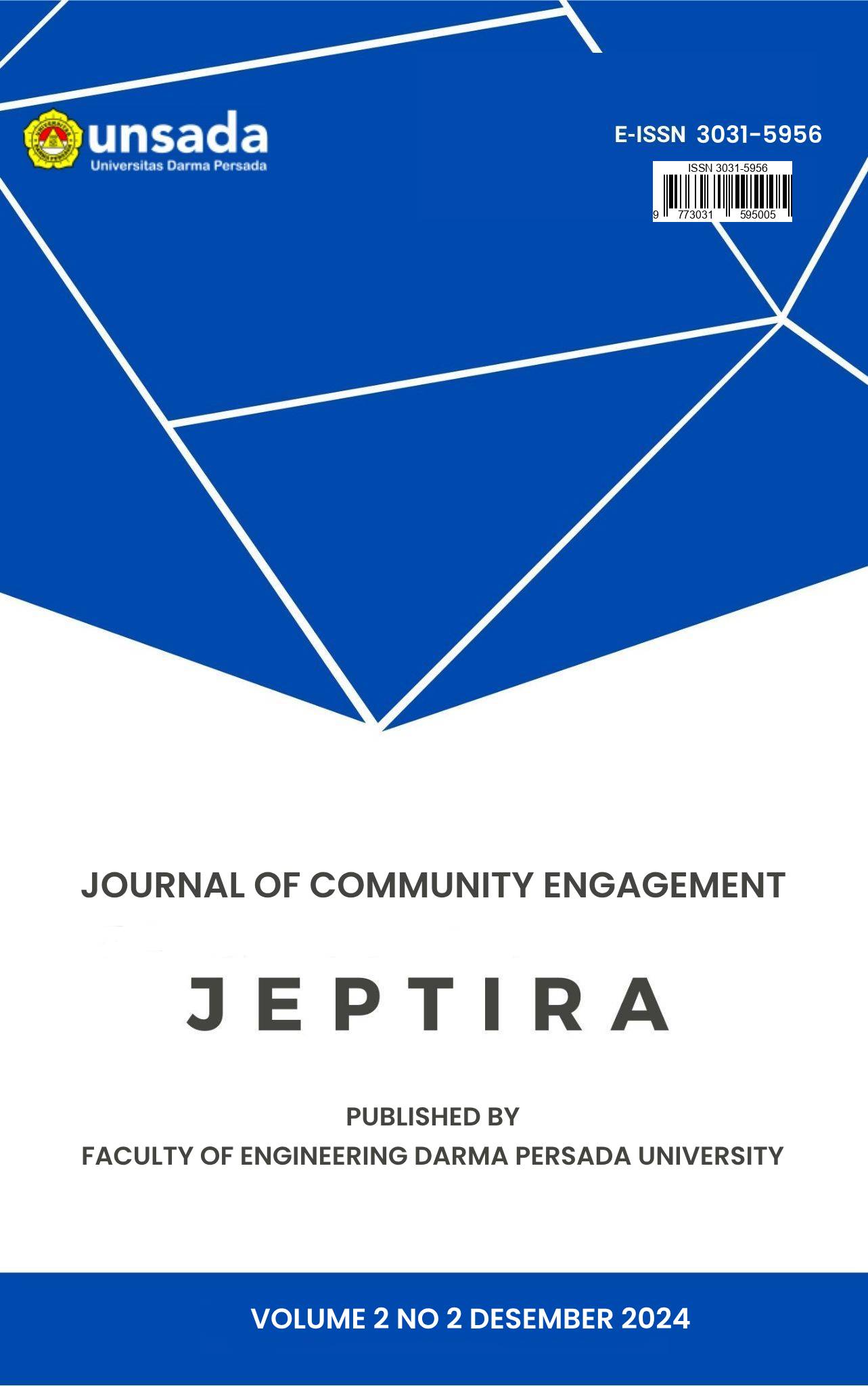Training on the Use of AI Tools to Support High School/Vocational High School Education in Jakarta
Main Article Content
Abstract
The numerous facets of education have been significantly transformed by artificial intelligence (AI) technology. It is currently in widespread use to improve the efficiency of learning, provide personalized learning experiences, and assist instructors in managing administrative responsibilities. In addition to its advantages, the integration of AI into education also poses obstacles, including ethical concerns, excessive dependence on technology, and doubts about the validity of learning outcomes. The objective of this community service activity is to investigate the potential benefits and drawbacks of AI applications in education, as well as to offer suggestions for their effective implementation. Educators can employ AI more responsibly and effectively by comprehending both the advantages and obstacles. The training is administered online to ensure that a diverse audience, including high school and vocational school teachers in Jakarta, has access to the material. It commences with a pre-test to assess the initial comprehension of AI tools among participants. A post-test is administered at the conclusion of the session to assess the extent to which the knowledge has been enhanced as a result of the training
Article Details

This work is licensed under a Creative Commons Attribution 4.0 International License.
References
J. Sullivan, P. D. Diamond, C. L. Kaplan, T. J. Mader, R. K. Santa, and R. S. Lloyd, “Community outreach as an iterative dialogue among scientists and communities in the Texas gulf coast region,” in Mutation Research - Reviews in Mutation Research, 2003. doi: 10.1016/j.mrrev.2003.06.015.
L. Lukman, Riska Agustina, and Rihadatul Aisy, “Problematika Penggunaan Artificial Intelligence (AI) untuk Pembelajaran di Kalangan Mahasiswa STIT Pemalang,” Madaniyah, vol. 13, no. 2, 2024, doi: 10.58410/madaniyah.v13i2.826.
S. R. R. Putri Supriadi, S. U. Haedi, and M. M. Chusni, “Inovasi pembelajaran berbasis teknologi Artificial Intelligence dalam Pendidikan di era industry 4.0 dan society 5.0,” J. Penelit. Sains dan Pendidik., vol. 2, no. 2, 2022, doi: 10.23971/jpsp.v2i2.4036.
S. Sahren, Ruri Ashari Dalimunthe, A. Afrisawati, and Muhammad Wahi Butar-Butar, “Pelatihan Penerapan Pembelajaran Berbasis Artificial Intelligence Di UPT SD Negeri 04 Sei Muka,” J. Indones. Soc. Soc., vol. 1, no. 3, 2023, doi: 10.59435/jiss.v1i3.205.
J. Domenech, “ChatGPT in the classroom: friend or foe?,” in International Conference on Higher Education Advances, 2023. doi: 10.4995/HEAd23.2023.16179.
L. N. Fadilah and H. Sulistyowati, “Keefektifan dan Respon Peserta Didik Terhadap Bahan Ajar e-Modul Berbasis Aplikasi Flip Pdf Corporate,” J. Pendidik. Tambusai, vol. 6, no. 1, 2022.

